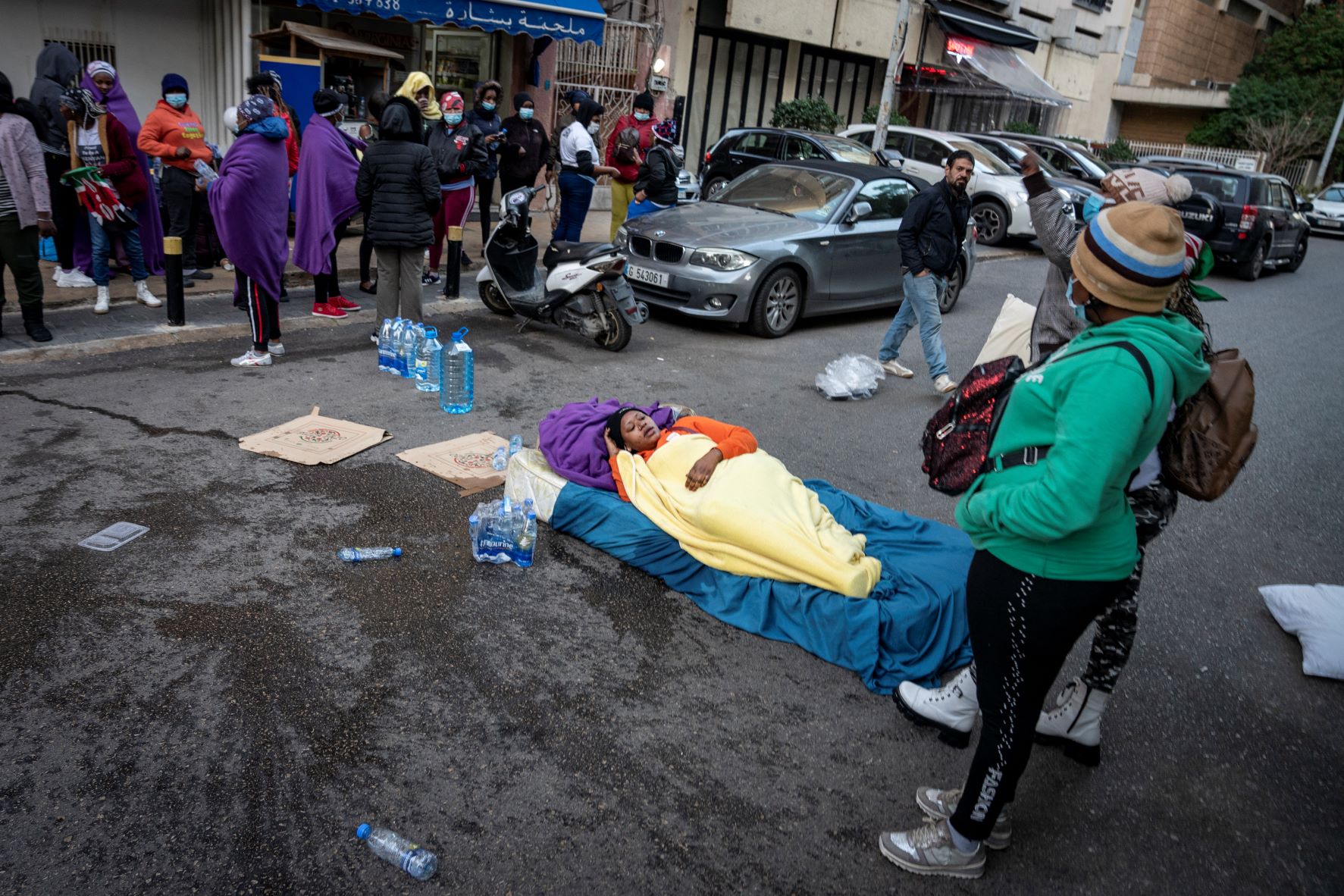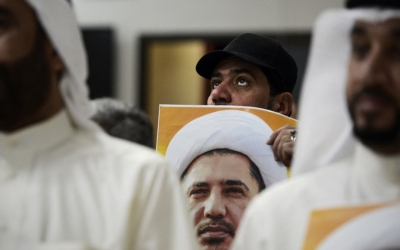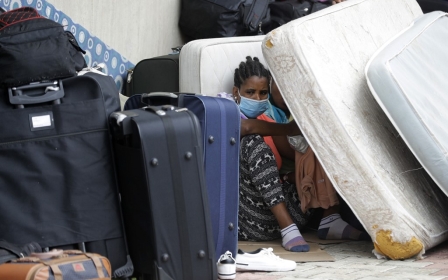Lebanon: Kenyan woman facing deportation 'because of her activism for migrant workers'

“We’ll be there for you, OK? They’re taking you back to General Security, you’re not going to travel, OK?”
In a video circulated on social media last week, an activist can be heard reassuring a woman who is being held in the back of a detention van in Beirut, painfully sobbing and crying as the vehicle pulls away.
The cries are from "NM" (her identity is protected), a Kenyan who was taken to the airport on 4 August to be deported to Kenya. NM had already spent four months being detained by Lebanon’s General Security Directorate (GSO), where she reportedly suffered human rights abuses, including torture.
It was only after an intervention at the Rafic Hariri International Airport in Beirut by activists from Lebanese NGO the Anti-Racist Movement (ARM) that the deportation was stopped. However, according to ARM, NM may still be forced to travel, as her deportation order is expected to still be in place.
ARM argues that the deportation would put NM’s life at risk as she is likely to face persecution and violence upon her return to Kenya. The NGO argues that deporting NM while her asylum claim is being reviewed by the UNHCR would be illegal under international law.
NM was arrested and detained on 4 April. During the GSO’s investigation, ARM says that she faced torture and physical violence, which resulted in a broken leg. She was then denied access to medical care and treatment. It was only once she was referred to the International Committee of the Red Cross that she was eventually seen by a doctor.
'Complicated labyrinth of justice'
The accusations levied against NM that led to her arrest were later found to be baseless, and the charges were dropped on 21 April. However, NM was kept in custody and faced deportation, as her residency had expired. She has now been held longer than the four months that she can be legally detained.
In April, NM’s attorney had requested the option to regulate her status in Lebanon. However, this was denied by the GSO. A representative was claimed to have said at the time that they could not process the request, due to their suspicion it would be a "fake" sponsorship - even though sponsorship validation falls under the remit of a different governmental department, not the GSO.
'We don't think it's a coincidence that she was a prominent organiser of the protest this year'
- Farah Baba, Anti-Racist Movement
“The complicated labyrinth of justice that faces these workers is a wall that separates between a fair trial and the easy measure of deportation,” says Zeina Mezher of the International Labour Organization (ILO).
As well as documenting NM's mistreatment, ARM is also asking questions about the state’s conduct in regard to her deportation. ARM claims that the GSO did not allow NM access to her lawyer, and denied her visits from the UNHCR. The GSO is also accused of withholding information about her legal status and whereabouts on 4 August, the day she was due to be deported.
ARM believes that NM has been targeted due to her activism in the domestic migrant worker community. She was one of the Kenyans who participated in the sit-in and protests outside the Kenyan consulate in Beirut in January, by dozens of women who were waiting, for extended periods, to be repatriated to Kenya.
"We don't think it's a coincidence that she was a prominent organiser of the protest this year, and was one of the more outspoken voices with the media," says Farah Baba, advocacy and communications officer at ARM.
Kafala system
This is not the first time the GSO has organised the deportation of a migrant domestic worker. In December 2016, Human Rights Watch documented the deportation of Nepali activist Sujana Raja, who had been organising to improve the rights and conditions of migrant workers in Lebanon.
As the Kenyans' sit-in in January grew in size, and engaged more with the media, the more it became about the ongoing mistreatment and poor conditions endured by migrant domestic workers under Lebanon’s kafala system.
Lebanon is one of several Arab countries to use the kafala system, a series of laws and practices which binds workers' status in the countries to their employers, and prevents them from basic labour rights and protections afforded to the Lebanese workforce. The system has long been called out by human rights organisations, describing it as modern-day slavery, as it systemically results in the exploitation of workers.
“Domestic work being outside the labour law deprives workers of the fundamental right of organising, and increases the vulnerability of any migrant worker claiming their rights in public,” says Mezher.
Sex work pressures
NM was arrested shortly after a video report was released in which a Kenyan consulate representative defamed activists, including NM, accusing them of multiple crimes and publicising their names, identities and pictures of their passports. ARM also claims that the same representative, Assistant Consul Kassem Jaber, had visited NM after she was arrested and threatened with deportation.
Jaber has also been accused of pressuring another Kenyan woman to testify against NM.
When questioned, Jaber told Middle East Eye that he did not visit NM, saying instead that she refused the consulate's help. When asked if the consulate would be doing anything more to help with NM’s case, given she has been held now for longer than four months, Jaber said: “As a consulate, we follow what immigration decides. We are always behind the General Security decisions.”
The consulate refused to comment on any of the other allegations.
According to a 2020 CNN report, Kenyan workers claim to have been physically assaulted and pressured to get involved in sex work by consulate representatives, who remain in post. The representatives denied these accusations.
MEE contacted the GSO in Beirut to enquire about NM’s case, but had no response at the time of publishing. NM, meanwhile, remains in detention.
Middle East Eye propose une couverture et une analyse indépendantes et incomparables du Moyen-Orient, de l’Afrique du Nord et d’autres régions du monde. Pour en savoir plus sur la reprise de ce contenu et les frais qui s’appliquent, veuillez remplir ce formulaire [en anglais]. Pour en savoir plus sur MEE, cliquez ici [en anglais].






